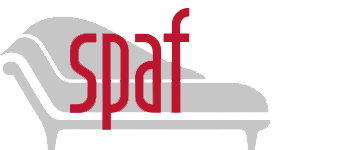Aktuell bok av Fred Busch: The Analyst’s Reveries. Explorations in Bion’s Enigmatic Concept. Recenserad av Annika Künstlicher i Scandinavian Psychoanalytical Review Vol 43, no 1 2020.
Fred Busch has now written a new book “The Analyst’s Reveries. Exploration in Bion’s Enigmatic Concept” (Routledge, 2019) which inquires into the roots of reverie and makes a thorough review of different writers’ views on the use of reverie by psychoanalysts. Fred Busch, who is a Training analyst at Boston’s Psychoanalytic Institute, has previously published around 70 articles and several books, one of the latter being “Creating a psychoanalytic mind” (2013). The new book continues in the same vein and creates a space for reflecting on psychoanalytic techniques with its focus on the concept of reverie, based on how Bion defines the term, and the way in which this has been picked up and put to use by various predecessors within the post-Bionian tradition. The origins of this inspiring and thought-provoking book is to be found in a discussion led by Cláudio Eizirik on the subject of Freud Busch’s plenary lecture at the IPA conference in Boston, in 2015. In connection with an hour-long session, which the analyst experienced as mechanical and also repetitive and dull, an image forms in the mind of the analyst of two kids in a bathtub, covered in soap suds and trying to grip one another at the same time the properties of the soap causes them to slip out of each other’s grasp. The image depicts the analyst’s interaction with the analysand; in a similarway they fail to connect. Fred Busch thinks “I hope the analyst doesn’t share this image with the analysand”, but to his surprise this is precisely what the analyst does, and the result is that they make a connection. This prompts Fred Busch’s impulse to explore in greater depth the idea of “reverie” and how it is viewed by different writers. It’s not easy to explore a psychoanalytic concept such as the analyst’s reveries, as it has become for so many of us a natural way to understand our patients. Once an idea has been shown to have clinical value the emphasis must be to examine its utility, but he also concludes that critical examination at this point appears mostly to cease. Grotstein sums it up: “Of all Bion’s new ideas, that of reverie seems to be acquiring the most cachet as an instrument of technique”. Ferro goes so far as to suggest that reverie provides an essential new basis for thinking about the methods and goals of treatment: “we have to defend ourselves from what we already know: all that is known should not interest us anymore”. So are we witnessing a paradigm shift within psychoanalytic technique?
Annika Künstlicher
Läs hela recensionen: Här
